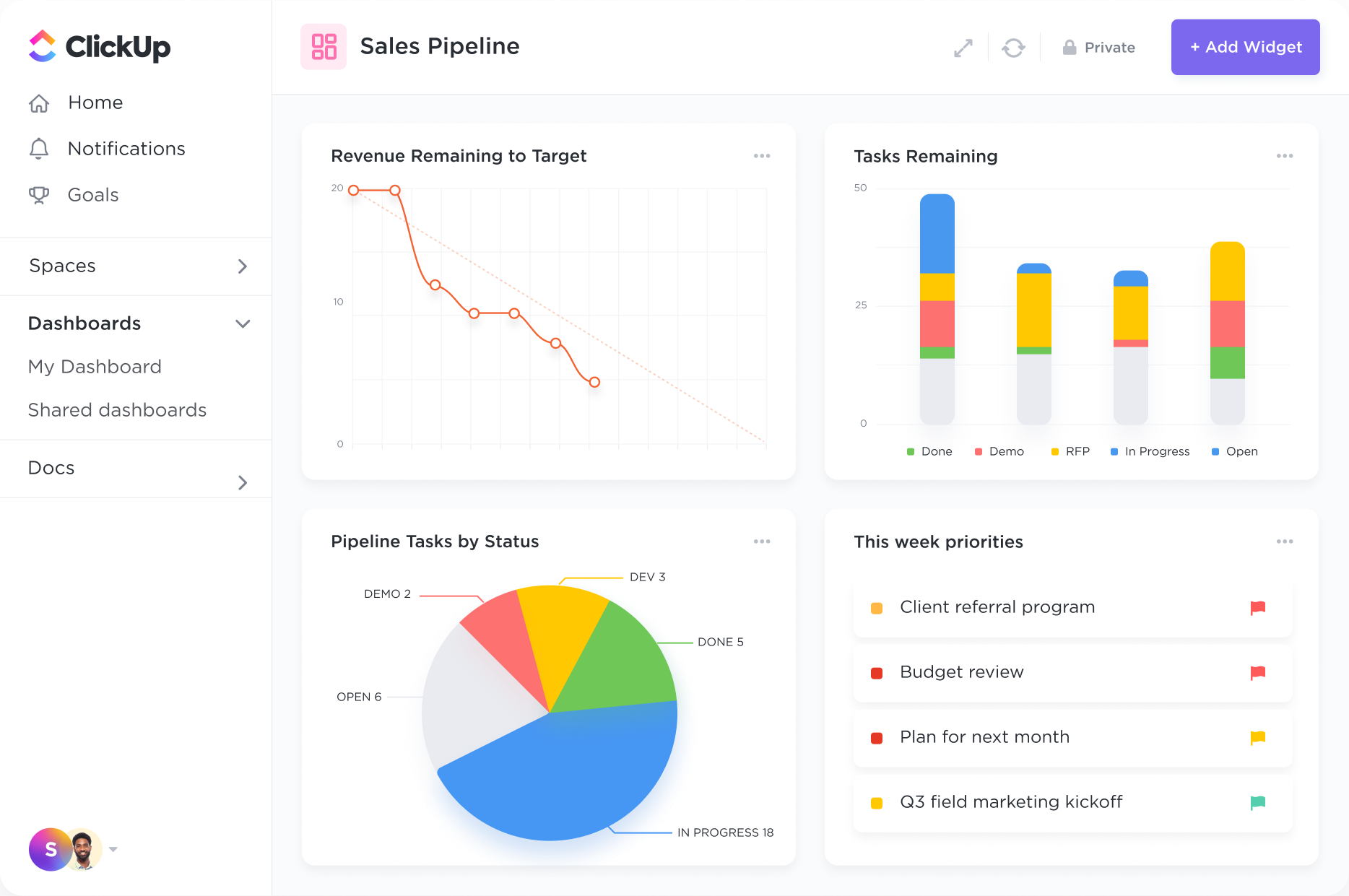Email Management
Centralize customer outreach.
Eliminate silos and fast-track communication by integrating your emails with ClickUp. Collaborate on deals, send project updates to clients, and onboard customers with a single email hub.

Gantt Charts
Maximize your efficiency and streamline your client interactions with a CRM system customized for Social Services Professionals. ClickUp offers a user-friendly platform to manage your caseload, track client progress, and schedule appointments all in one place. Elevate your practice and provide top-notch care with ClickUp's tailored CRM solution.
Free forever. No credit card.
Email Management
Eliminate silos and fast-track communication by integrating your emails with ClickUp. Collaborate on deals, send project updates to clients, and onboard customers with a single email hub.

Performance Dashboards
Create high-level views to monitor customer lifetime value, average deal sizes, and more. ClickUp's 50+ Dashboard widgets make it easy to visualize all of your customer data in one place.

A CRM system can centralize all client information, including demographics, case history, services provided, and progress notes. This streamlines case management tasks, ensures data accuracy, and facilitates better client outcomes.
CRM software can help social services professionals manage client appointments, follow-ups, and service delivery schedules. It reduces double bookings, ensures timely appointments, and improves overall service efficiency.
CRMs can track available resources, services, and programs within the social services organization. They also facilitate easy referral management by connecting clients to appropriate services and tracking the status of referrals for better coordination.
CRM systems provide tools for generating reports on client outcomes, service utilization, and compliance with regulations. This helps social services professionals demonstrate program effectiveness, identify areas for improvement, and ensure adherence to legal requirements.
CRM software offers secure data storage to protect sensitive client information. It enables social services professionals to adhere to confidentiality guidelines and regulations while ensuring that data is accessible only to authorized personnel.
CRM software helps social services professionals by providing a centralized platform to store and manage client information and case records securely. It enables easy access to data, streamlined communication, automated workflows, and customized reporting, improving efficiency and effectiveness in client management and service delivery.
Social services professionals should look for CRM software with features such as customizable data fields for tracking client information, automated progress tracking and outcome monitoring, goal setting and tracking capabilities, reporting and analytics tools for measuring client progress, and secure data management functionalities to ensure client confidentiality and compliance with regulations.
Yes, CRM software for social services can integrate with other tools commonly used in the industry, such as electronic health records or data reporting platforms, to streamline processes, improve data visibility, and enhance service delivery.